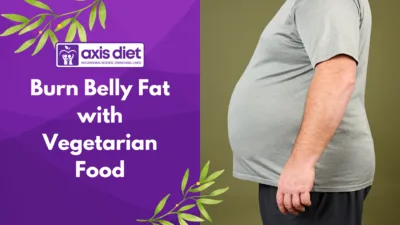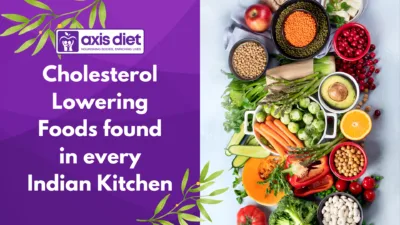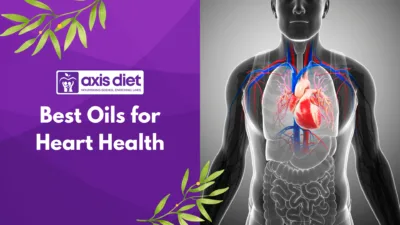Weight loss can be particularly challenging for women over 30 due to hormonal changes, slower metabolism, and lifestyle factors. This guide offers a tailored diet plan that considers Indian dietary habits, nutritional needs, and effective strategies to promote weight loss for women in this age group.
Understanding Weight Loss for Women Over 30
Women over the age of 30 encounter distinct challenges when it comes to weight loss. One of the primary factors influencing this struggle is hormonal changes. As women age, levels of hormones such as estrogen begin to fluctuate. This can lead to a shift in fat distribution, making it easier to gain weight around the abdomen. Additionally, these hormonal changes can impact mood and energy levels, often leading to increased cravings for high-calorie comfort foods.
Lifestyle effects also play a significant role in weight loss for women in this age group. Many women juggle multiple responsibilities, such as family, work, and social commitments, leaving little time for exercise or meal preparation. This hectic lifestyle often leads to poor dietary choices, like relying on quick, processed meals that are high in sugar and unhealthy fats. Furthermore, sleep deprivation, common due to various life stressors, can contribute to weight gain by disrupting metabolic functions.
The slowdown in metabolism is another key factor affecting women over 30. Metabolism naturally declines with age, meaning the body burns fewer calories at rest. This is often exacerbated by muscle loss, which is common in the aging process. Moreover, women may become less physically active due to various factors, including fatigue, decreasing interest in exercise, and time constraints. This combination of hormonal fluctuations, lifestyle challenges, and metabolic changes creates a complex environment for weight management.
Addressing these challenges requires a multifaceted approach. Emphasizing nutrient-dense foods rather than high-calorie options is essential. Additionally, incorporating strength training can help combat muscle loss and improve metabolic rate. It can also enhance overall fitness, leading to more energy for daily responsibilities.
Women need to prioritize mindfulness in their eating habits. Practicing mindful eating can help in tuning into hunger cues and avoiding emotional eating. By focusing on the experience of eating, including the flavors and textures of food, women can foster a healthier relationship with food.
Support systems play an important role, too. Engaging with friends or joining community groups can offer motivation and accountability. Sharing experiences and challenges can make the journey towards weight loss feel less isolating. Seeking professional advice tailored to individual needs can also be beneficial. For more insights on managing lifestyle factors related to weight loss, refer to mindful eating.
Nutritional Needs for Women Over 30
Women over 30 have specific nutritional needs that are crucial for maintaining health and supporting weight loss. As women age, various physiological changes occur, including hormonal shifts and metabolic adjustments. Understanding these needs will help in selecting the right foods to promote a healthy weight and overall well-being.
One of the most important components of a weight loss diet is protein. This macronutrient is essential for muscle maintenance and repair, especially as muscle mass tends to decline with age. Protein-rich foods such as legumes, lentils, nuts, seeds, and dairy should be prioritized. Including a good amount of protein in each meal helps with satiety, reducing the chances of overeating. Ideally, aim for a combination of plant-based and animal-based protein sources.
Healthy fats also play a vital role in the diet. They are necessary for hormone production and support overall health. Women over 30 should focus on sources of unsaturated fats, such as avocados, olive oil, and fatty fish. These fats not only improve heart health but also aid in the absorption of fat-soluble vitamins. It’s crucial to avoid trans fats and limit saturated fats found in processed foods.
Additionally, essential vitamins and minerals cannot be overlooked. Calcium and vitamin D are particularly important for bone health, which can decline with age. Women can incorporate calcium-rich foods like leafy greens, dairy products, and fortified plant-based alternatives. Vitamin D, primarily obtained from sunlight, can also be sourced through foods such as fish and fortified cereals.
- Iron is another essential nutrient; it helps in oxygen transport and is crucial for energy levels. Women should focus on iron-rich foods like spinach, beans, and fortified grains.
- Vitamin B12 is important for energy metabolism and can be found in animal products. For those following a vegetarian diet, fortified foods may be necessary to meet requirements.
- Folic acid, important for cellular health, can be obtained through green leafy vegetables, legumes, and citrus fruits.
Fiber is another key element for women over 30. It aids digestion and helps maintain a healthy weight. Foods high in fiber, such as whole grains, fruits, and vegetables, should be included in daily meals. They help to keep hunger at bay and provide essential nutrients.
Women should focus on a varied diet to ensure they are meeting all their nutritional needs. This variety supports overall health and can make weight loss efforts more effective. For an extensive guide on healthy eating tailored to Indian cuisine, you can explore Balanced Diet: Setting Your Nutrition Compass Right.
Crafting a Balanced Diet Plan
The concept of a balanced diet is crucial for effective weight loss, especially for women over 30. This age group faces unique physiological changes that can affect metabolism and overall health. Hence, it’s essential to incorporate a variety of food groups that together provide the necessary nutrients without compromising caloric intake.
A balanced diet typically comprises the following food groups:
- Whole Grains: Foods like brown rice, quinoa, and whole wheat roti are excellent sources of carbohydrates and fiber. Choose a fist-sized portion for each meal.
- Proteins: Include lentils, chickpeas, paneer, and fish in your meals. Aim for a palm-sized portion, as proteins are also essential for muscle maintenance and satiety.
- Fruits: Fresh fruits like apples, guavas, and banana provide vitamins, minerals, and hydration. A serving of fruit, or about a cupped hand, is ideal.
- Vegetables: Dark green leafy vegetables, carrots, and beetroot provide fiber and essential nutrients. Fill half of your plate with vegetables at every meal.
- Healthy Fats: Nuts, seeds, and avocado are healthy fat sources. Limit these to a thumb-sized portion within your daily caloric goals.
Portion control can significantly influence weight loss. The plate method can simplify balancing portions. Use this method by dedicating half your plate to vegetables, one-quarter to proteins, and one-quarter to whole grains. This visual guideline helps in managing the right proportions easily.
Meal timing can also impact weight loss. Regular meal intervals can stabilize blood sugar levels and prevent excessive hunger. It is advisable to consume three main meals and two snacks throughout the day:
- Breakfast: Start your day with a filling meal. Include proteins and healthy fats to boost metabolism.
- Lunch: Focus on nutritious grains and vegetables to sustain energy levels.
- Snacks: Opt for fruits or nuts between meals, rather than processed snacks.
- Dinner: A lighter meal with proteins and vegetables works best, ideally consumed two to three hours before bedtime.
Our traditional Indian cuisine allows for a variety of spices and flavors while maintaining a healthy balance. Incorporating spices like turmeric, cumin, and ginger can enhance metabolism and aid digestion. The right combination of ingredients supports weight loss while ensuring nutritional sufficiency.
For more in-depth information on food choices that facilitate weight loss, consider exploring low-calorie Indian meals.
Effective Exercise Regimens
Integrating an effective exercise regimen is crucial for women over 30 seeking to complement their weight loss diet. A balanced approach that combines both cardio and strength training can yield significant benefits. This physical activity aids in burning calories, enhances metabolism, and helps in toning muscle. Here are some effective exercise routines designed specifically for women in this age group.
Cardiovascular Exercises are essential for burning calories and improving heart health. It is advisable to engage in at least 150 minutes of moderate-intensity cardio each week. Some recommended activities include:
- Walking: A simple yet effective way to start. Aim for brisk walks for about 30 minutes daily.
- Running or Jogging: These can raise the heart rate significantly. Start with intervals if you’re a beginner.
- Cycling: This low-impact option is great for those who enjoy being outdoors or using stationary bikes indoors.
- Dancing: Join a dance class to make cardio fun. Zumba or Bollywood dance offers great calorie burn.
- Swimming: A full-body workout that is easy on the joints and highly effective in building endurance.
Incorporating these exercises into your weekly routine can help you stay motivated and engaged. Choose activities that you enjoy to make the process more enjoyable.
Strength Training is equally important, particularly for women over 30. It helps build lean muscle mass, which can boost metabolism. A minimum of two days a week is recommended for strength training. Consider including:
- Bodyweight Exercises: Push-ups, squats, and lunges can be modified for any fitness level and are highly effective.
- Resistance Bands: These are a great way to incorporate resistance training while being easy to use at home.
- Dumbbell Workouts: A set of light dumbbells can add intensity to your strength training routine.
- Group Classes: Look for classes that focus on strength training, such as Pilates or functional training.
Combining these routines not only helps in effective weight loss but also contributes to overall well-being. For variety, consider alternating between different cardio and strength workouts throughout the week.
As your fitness progresses, gradually increase the intensity or duration of your workouts. This ensures continuous improvement and keeps the routine fresh. Staying consistent with both diet and exercise will lead to sustainable results in your weight loss journey.
For additional insights on effective meal plans and managing weight, you can explore affordable weight loss diet tailored for your nutritional needs.
Healthy Snacking Options
When striving for a balanced weight loss diet, healthy snacking plays a crucial role. Snacks can either support your weight loss journey or hinder it depending on their nutritional value. Choosing nutritious yet satisfying snacks can help curb cravings while providing essential nutrients. Here are some excellent options tailored for women over 30 seeking to lose weight effectively.
Fruits and Vegetables: Fresh fruits and vegetables are always a smart choice. They are low in calories, high in fiber, and packed with vitamins. Some satisfying options include:
- Carrot and cucumber sticks: These crunchy veggies can be enjoyed with hummus or yogurt dip.
- Seasonal fruits: Opt for apples, bananas, or guavas. They provide natural sugars and fibers, making you feel full.
- Roasted beetroot: This can be seasoned with herbs and enjoyed as a flavorful snack.
Nuts and Seeds: Nuts and seeds are nutrient-dense. Though they are higher in calories, moderation is key. A small handful can be incredibly satisfying. Consider:
- Almonds: Rich in protein and healthy fats, they make for a nutritious mid-day snack.
- Chia seeds: Mix chia seeds in yogurt or smoothies for added texture and nutrients.
- Sunflower seeds: Perfect for munching, but portion control is essential to avoid excessive calorie intake.
Whole Grains: Opting for whole-grain snacks can provide lasting energy. They are usually higher in fiber, keeping you full for longer. Some options include:
- Popcorn: Air-popped and lightly seasoned, popcorn is a low-calorie snack that is high in fiber.
- Whole grain crackers: Pair them with low-fat cottage cheese or a slice of avocado for added taste.
- Oats: Overnight oats flavored with fruits and a dash of honey can serve as a tasty snack.
Protein Options: Incorporating protein-rich snacks can help with muscle maintenance and keep hunger at bay. Here are a few suggestions:
- Greek yogurt: High in protein and can be combined with fruits or nuts for flavor.
- Hard-boiled eggs: Filled with protein and healthy fats, they’re an excellent on-the-go snack.
- Sprouts: Mix them with spices and lemon for a refreshing and protein-packed snack.
By integrating these healthy snacking options into your daily routine, you can align your diet with your weight loss goals effectively. For more meal ideas, you may find useful information in this article on low-calorie Indian meals. Incorporating wholesome snacks will not only keep you satisfied but also nourish your body during your journey toward fitness.
Lifestyle Modifications for Weight Loss
Weight loss is not solely about diet; it involves comprehensive lifestyle modifications. These changes can greatly enhance weight loss efforts, especially for women over 30 in India. Managing stress, improving sleep, staying hydrated, and practicing mindful eating are critical components of a successful weight loss journey.
Sufficient sleep plays a pivotal role in weight loss. Lack of sleep can interfere with the body’s hormonal balance. Hormones such as cortisol, which is linked to stress and appetite regulation, can spiral out of control when sleep is inadequate. Aim for at least 7-8 hours of good quality sleep each night. Create a calming bedtime routine to help prepare your body for rest.
Hydration is another essential factor. Drinking enough water can enhance your metabolism and aid in appetite control. When the body is adequately hydrated, it functions more efficiently, including burning calories. A good guideline is to drink at least 2-3 liters of water daily. Drinking water before meals can also prevent overeating. It will keep you feeling full and satisfied, allowing you to consume less food.
Effective stress management is crucial, particularly for women managing multiple roles in life. Stress can lead to emotional eating and cravings for unhealthy snacks. Incorporating relaxation techniques such as yoga, meditation, or deep-breathing exercises can reduce stress levels. Even short walks in nature can significantly impact how you feel and your overall well-being.
Mindful eating is equally important in the weight loss process. This practice encourages individuals to focus on what they eat, savoring each bite and recognizing hunger cues. By eating without distractions, such as television or mobile devices, one can better appreciate the flavors and textures of food. Make a habit of appreciating meals, chewing slowly, and stopping when satisfied rather than stuffed. This can prevent overeating and promote healthier choices.
Adopting these behaviors encourages lasting change. Each of these lifestyle modifications complements healthy snacking options, reinforcing the progress made in other areas. For additional information on mindfulness, consider exploring this guide to mindful eating. Building a strong foundation with these habits can significantly enhance the effectiveness of a weight loss diet plan for women over 30.
Professional Guidance and Support
Weight loss can often feel like an uphill battle, especially for women over 30. Seeking professional guidance is a crucial step that many find beneficial in their weight loss journey. A trained nutritionist or dietitian can assess individual needs and set realistic goals. This personalized approach is vital as every woman’s body responds differently to dietary changes. What works for one may not work for another, emphasizing the importance of tailored plans.
Personalized diet plans can lead to enhanced weight loss results. By analyzing factors such as metabolic rate, activity level, and food preferences, professionals create plans that are sustainable and effective. They can provide insight into necessary macronutrient ratios while considering cultural food habits, ensuring that meals remain enjoyable. The professional’s expertise is invaluable in teaching portion control and healthy cooking methods that fit into an Indian lifestyle.
Moreover, professional guidance boosts accountability. Having regular check-ins with a dietitian can encourage consistent adherence to the plan. This accountability fosters a supportive environment where one can discuss challenges openly. Through professional support, individuals may discover productive coping mechanisms for emotional eating, an often overlooked but significant factor in weight management.
Additionally, consultations can evolve, adjusting strategies as progress is made or obstacles arise. This flexibility helps in maintaining motivation. A dietitian may recommend specific foods to incorporate or eliminate based on individual progress and feedback. They also offer support in understanding healthy eating habits, which enhances the quality of one’s diet, not solely focusing on weight loss but overall well-being.
The emotional aspect of dieting is just as important. Weight loss can be a lonely journey, and having a professional to lean on for support can make a significant difference. Furthermore, group sessions or workshops may provide social encouragement from others with similar goals. Sharing experiences and challenges fosters camaraderie and motivates everyone involved.
While it is important to follow a tailored diet plan, the psychological benefits of seeking professional support cannot be overstated. Feeling understood and supported can make the weight loss journey more manageable and less daunting. Learning how to shop wisely, manage cravings, and make healthier choices in everyday life becomes easier with guidance. For additional insights on healthy eating, you can explore a guide on balanced diet.
Final words
Implementing a weight loss diet plan specifically for women over 30 can lead to healthier lifestyle choices. Prioritize balanced nutrition and consult a professional if needed to achieve your personal health goals.
The content provided in this blog post is intended for general knowledge and informational purposes only. It should not be considered a substitute for professional medical advice, diagnosis, or treatment. For personalized health recommendations tailored to your individual needs, we highly encourage you to connect with our certified clinical dietitians. Visit us at Axis Diet Consulting to schedule a consultation and take the first step toward your health journey!






[…] more insight into the benefits of vegetarianism and practical dietary guidelines, visit this weight loss diet plan for women over 30. Understanding the nuances of a vegetarian diet can empower individuals to make informed choices […]